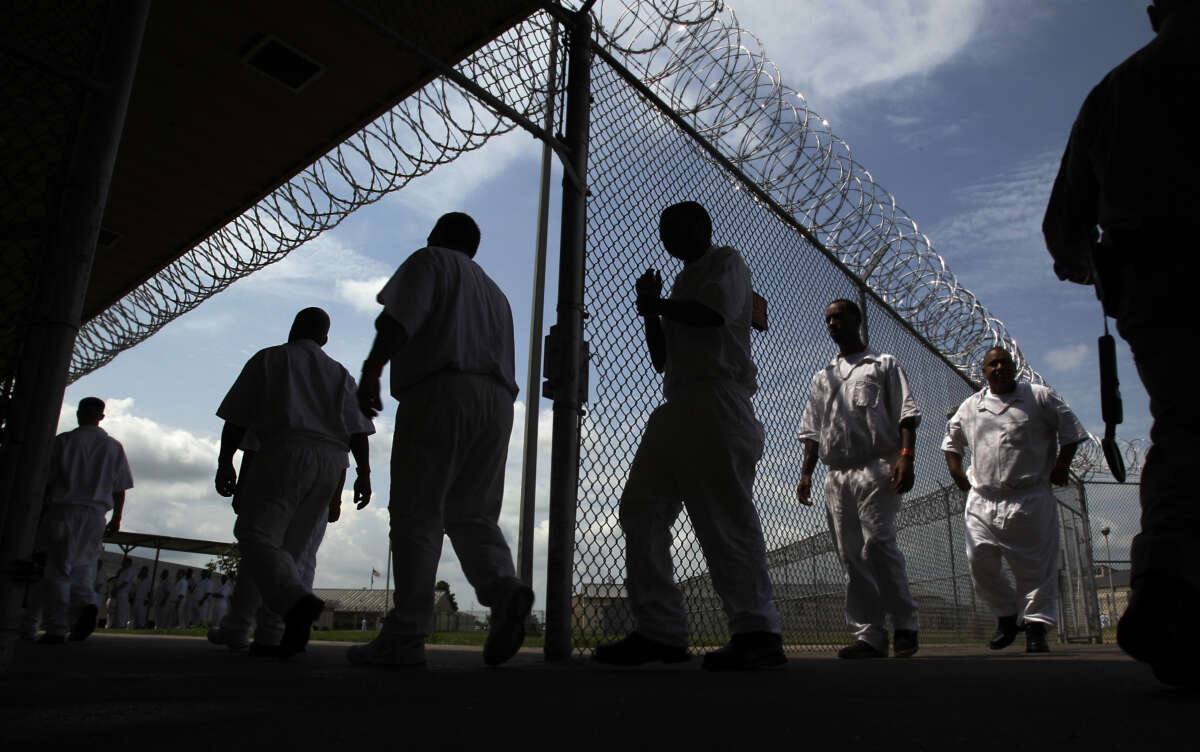On May 19, Building Freedom Ohio (BFO), a division of the Ohio Organizing Collaborative, will host a convening of formerly incarcerated persons in Cleveland focused on building political power and educating directly impacted individuals about political, legislative and voting strategies.
As a returning citizen and BFO fellow, I’ll be attending the gathering with a sense of urgency. I’m participating because I want shine a light on “collateral sanctions,” which are policies and practices that perpetually punish persons who have been arrested, convicted or incarcerated as a result of felony charges by eliminating many of their basic civil rights.
Once a person has been convicted of a crime, even if we survive incarceration, we experience a civil death of sorts; we are not treated as regular citizens. We’re excluded from basic rights and privileges — all after having already served our sentence. If you have a loved one who is a formerly incarcerated person, you likely know what it’s like to sit with them after they have received rejection upon rejection for an apartment, a job, grants or loans for school, or anything else that matters in life.
The bottom line is that the issue of collateral sanctions (also called collateral consequences) must be brought to the forefront. In 2018, there were nearly 1,100 collateral consequences expressed through policy in Ohio, according to Policy Matters Ohio, including everything from limitations on where a person can live and work, to what resources they can access. For instance, some apartment complexes bar persons with felony convictions from living on their premises. In fact, most people with felony convictions can recount horror stories of trying to obtain housing. They also include restrictions on the types of supports — such as public benefits, government-sponsored student loans and grants, or health care — that a previously nonconvicted person may access.
Collateral sanctions are relics of slavery. In the same way that the U.S. Constitution permits slavery as a punishment for crime, collateral sanctions enable the power structure to penalize those it deems “unworthy” and “undesirable.”
They also include restrictions on employment or certain types of occupational licenses, including those for electrical contractors, HVAC contractors and solicitors. Most shockingly and equally devastating, collateral sanctions also include ineligibility to provide foster care to minor family members. Would our elected leaders really prefer a child not know love than receive it from a rehabilitated and safe caregiver who has been impacted by the prison system?
It’s important to note that this form of perpetual punishment isn’t actually about safety. Preventing people from finding housing or a good job actually makes communities less safe.
As a consequence of collateral sanctions, I’ve faced one post-release hurdle after another. Because I have a conviction on my record, I will never be looked at the same again by some people. Although I obtained a bachelor’s degree in business administration, most people look at me and see felony conviction, but I am so much more.
The irony is that in permitting collateral sanctions, local and state jurisdictions harm us all. As a result of collateral sanctions, individuals with criminal records are barred from being fully integrated back into the community, businesses experience a smaller pool of workers, and talented and capable individuals are unable to bring their full selves to work or to the community.
My hope in attending BFO’s May 19 event is to raise awareness and inspire elected leaders to take action to end collateral sanctions once and for all. I want to see officials acknowledge the pain of “forever punishment.” I want them to be inspired to remove these barriers that keep people like me from being reintegrated back into society.
We are gaining national momentum in the fight against collateral sanctions. For example, New Jersey passed the Fair Chance in Housing Act in 2021, which prevents housing providers from discriminating against formerly incarcerated individuals. A similar law is being considered in Michigan. And in my home state of Ohio, Republican legislators recently introduced the GROW Act, which will make it easier for some returning citizens like me to get jobs, reintegrate and rehabilitate ourselves by automatically sealing certain criminal records. However, the proposed law as it is currently written leaves out huge swaths of criminalized people. Because it may be difficult to push for another bill after this one, it’s essential that we get it right the first time.
I know the pain that I live with on a day-to-day basis. But nearly 1 million persons in Ohio with felony convictions are also potential victims of collateral sanctions. We need help. We want to move forward, but we need society’s help to do so.
Trump is silencing political dissent. We appeal for your support.
Progressive nonprofits are the latest target caught in Trump’s crosshairs. With the aim of eliminating political opposition, Trump and his sycophants are working to curb government funding, constrain private foundations, and even cut tax-exempt status from organizations he dislikes.
We’re concerned, because Truthout is not immune to such bad-faith attacks.
We can only resist Trump’s attacks by cultivating a strong base of support. The right-wing mediasphere is funded comfortably by billionaire owners and venture capitalist philanthropists. At Truthout, we have you.
Truthout has launched a fundraiser to raise $34,000 in the next 5 days. Please take a meaningful action in the fight against authoritarianism: make a one-time or monthly donation to Truthout. If you have the means, please dig deep.
